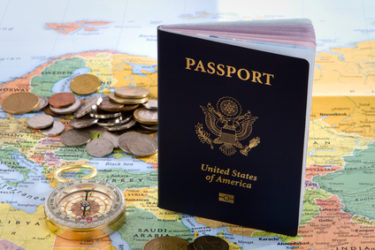 If you are, then this information definitely pertains to you. Apart from domestic earned income, the United States also taxes income earned from foreign countries. The IRS provides a deduction on taxable income for US citizens living and working outside the United States. US citizens and residents living and working outside the United States are allowed an exclusion for wages or income earned from entrepreneurship ventures from a foreign country.
If you are, then this information definitely pertains to you. Apart from domestic earned income, the United States also taxes income earned from foreign countries. The IRS provides a deduction on taxable income for US citizens living and working outside the United States. US citizens and residents living and working outside the United States are allowed an exclusion for wages or income earned from entrepreneurship ventures from a foreign country.
The foreign earned income exclusion is claimed using the IRS Form 2555 or Form 2555-EZ. These forms must be attached to the IRS Form 1040 that is used to file annual tax returns. Here is a brief rundown of some guidelines that pertain to the United States foreign earned income exclusion package offered by the IRS.
Are you considered a resident in a foreign country?
There are two main ways the IRS uses to determine whether a person is qualified for foreign earned income exclusion. The IRS has the Bonafide Residence Test and the Physical Residence Test. If you meet the requirements of either then you qualify as a residence in a foreign country and have to report your foreign earned income on your U.S. tax return, and file an FBAR.
- Bonafide Residence Test
United States citizens or residents who meet this requirement are those who have been residing in a foreign country consistently for an entire tax year.
- Physical Presence Test
A US citizen or resident meets the physical presence test if they have been residing in a foreign country for 330 days or for 12 consecutive months. The 330 days do not have to be consecutive.
Exclusions & Tax Credits
- According to tax regulations the optimum amount of foreign exclusion for every spouse is $ 100,800 annually. After the exclusion has been made, all the foreign tax credits are applied as a credit.
- It is allowed by United States tax regulations to credit taxes paid in a foreign country in order to reduce the annual federal tax requirement. This will require providing your foreign prepared tax return to your U.S. tax preparer substantiating documented account of all the taxes that have been paid in foreign countries.
- Housing Exclusion: This regulation allows qualified individuals to claim a substantial deduction to accommodate the cost of housing in a country where the income was earned.
- Persons required by tax regulations to include foreign earned income in tax returns.
Any US Citizen or Resident that earns income in a foreign country is required to report their foreign earned income as well as an FBAR, Form 8938 Statement of Specified Foreign Financial Assets and for multinational business owners Form 5472 Information Return of a 25% Foreign-Owned U.S. Corporation or a Foreign Corporation Engaged in a U.S. Trade or Business. If you earned substantial income in a foreign country then you may have to pay taxes on that money in the U.S. as well. Failing to report your foreign earned income from the IRS is considered tax evasion and can be as severe as a criminal offense with jail time.
If you have any foreign earned income and need to file a Foreign Bank Account Report, or not sure whether you need to file, give us a call. At Rosillo & Associates, we take care of your tax needs for long term financial success.







